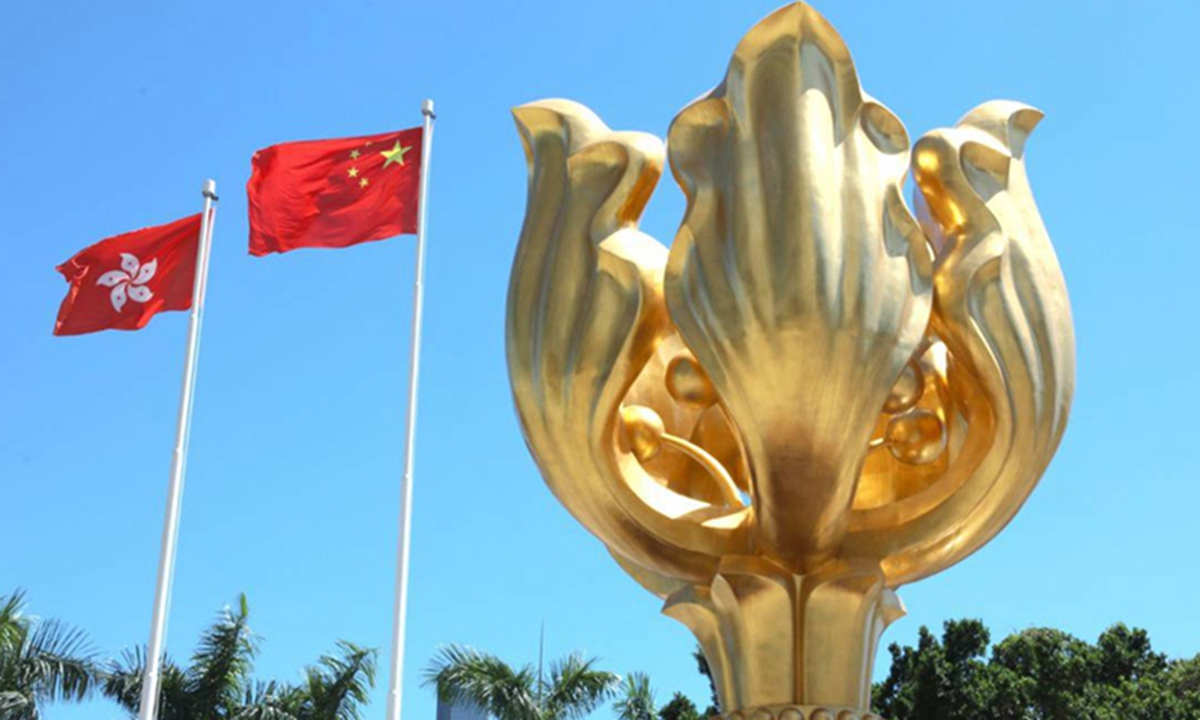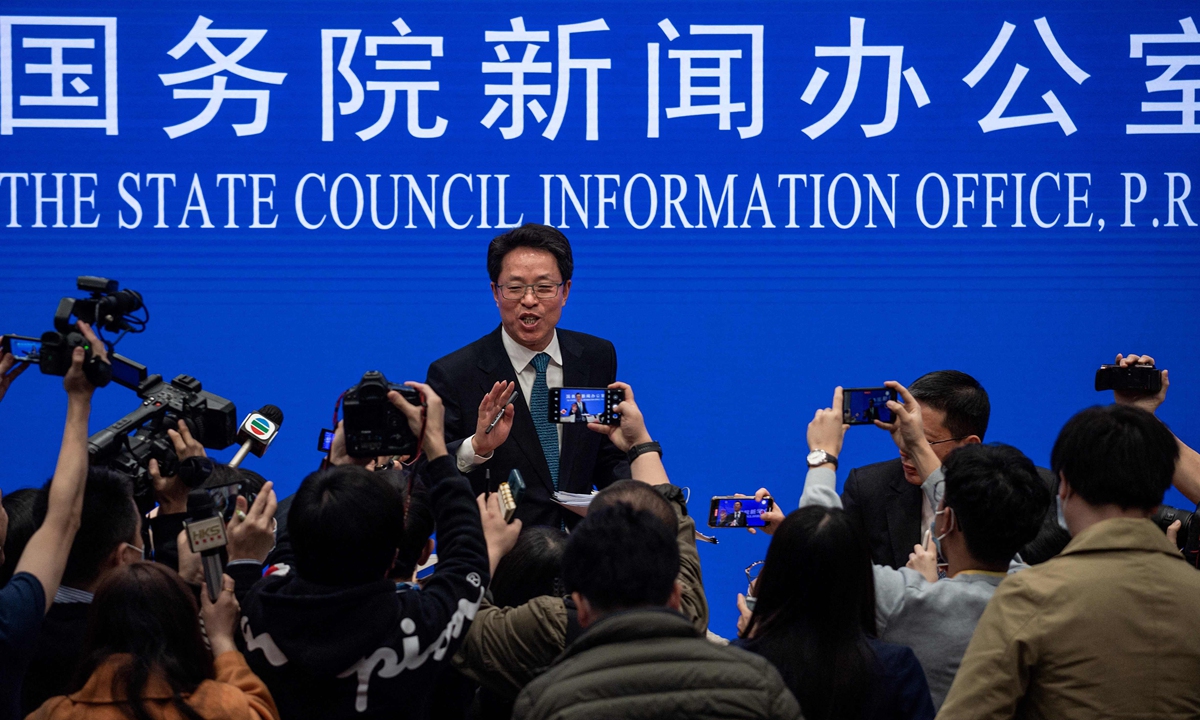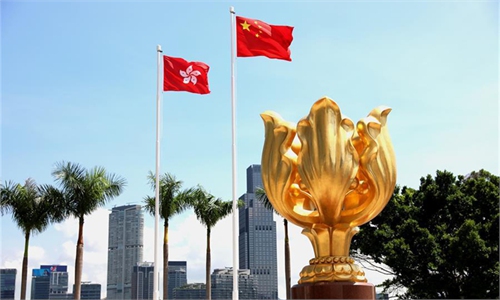Senior Chinese officials vow countermeasures against West’s interference in HK electoral reform
‘No room to retreat’ as city’s problems are not about democracy, but a power grab

Hong Kong
After a small number of countries, mainly the anti-China axis Five Eyes countries, expressed their so-called severe concerns over the electoral system reform of Hong Kong, which was approved by China's top legislature in a landslide vote, senior Chinese officials, once again, clearly stated their unshaken determination to fix the loopholes in the Chinese city which have been exploited by anti-China forces, and resolutely fight back with countermeasures if those Western countries continue meddling in China's internal affairs.
The remarks of some countries on Hong Kong do not reflect the majority opinion of the international community, as more than 70 countries have expressed support for China's position on the matter and urged other countries to stop interfering in the country's internal affairs. Countries such as Vietnam and Iran also further elaborated that any foreign interference in China's internal affairs should be rejected, according to the statements sent to the Global Times on Friday.
While some countries like those in the EU are threatening or considering taking additional measures to pressure China over the electoral reform for Hong Kong, senior Chinese officials said on Friday that on the question of Hong Kong, the Chinese government has no room to retreat, as the problems with Hong Kong are not a question of democracy, but a question of subversion and seizing of power.
Over the past few years, anti-China forces and troublemakers exploited loopholes and flaws in Hong Kong's current electoral system to endanger China's sovereignty, national security and interests of development, severely damaging the constitutional order and the effective governance. Therefore, the central government has to take necessary moves to improve the system, which is not only within the power of the National People's Congress (NPC), but also its responsibility, Zhang Yong, deputy head of the Commission for Legislative Affairs of the NPC Standing Committee, told a press conference on Friday.
Chinese lawmakers voted overwhelmingly on Thursday to adopt a decision on improving the electoral system of Hong Kong at the close of the fourth session of the 13th NPC, reflecting a collective will of the Chinese people to solve deep-seated political flaws that were clouding the Chinese city's development.
The anti-extradition bill protest in 2019 turning into social turmoil proved that the current problems in Hong Kong are political ones involving taking over power, subversion and penetration of hostile forces, rather than about the democratic progress. "On those questions, we have no room to retreat," said Zhang Xiaoming, deputy director of the Hong Kong and Macao Affairs Office of the State Council, during the press conference Friday.

Zhang Xiaoming (center), deputy director of the Hong Kong and Macao Affairs Office of the State Council, gestures in front of journalists at the end of a State Council press conference on the electoral system reform of Hong Kong in Beijing on Friday. Photo: VCG
Black handsCountries such as the US, Australia and the UK, which have been criticizing China on the matter of Hong Kong, openly support some anti-China political figures in instigating an anti-government and anti-China movement in Hong Kong, and are part of the "black hands" behind the social turmoil that dragged the city from prosperity and stability to the brink of collapse.
Some foreign forces had a hand in the social turmoil and months-long rampage in Hong Kong in 2019, including Democratic politician Nancy Pelosi, who openly praised the riots as a "beautify sight," and Senate Majority Leader Mitch McConnell and Republican Senator Marco Rubio who gave support to anti-China rioters.
When the Capitol Hill violence broke out in Washington, those politicians referred to it as "terrorism," which showed their typical double standards, and I don't understand how they even have a moral high ground in pointing a finger at Hong Kong affairs, Zhang Xiaoming said.
Chinese observers said the evil role played by a small number of Western countries such as the US and the UK on Hong Kong matter have been continuously weakened in the face of the unshakable determination of Beijing, and such diminishing influence slaps the face of some politicians like British Foreign Secretary Dominic Raab and Australian Foreign Minister Marise Payne, driving them to make so-called condemnations, which would end up in vain.
"I would like to point out that Western countries, led by the US, often talk about the Hong Kong situation out of context," Rita Fan Hsu Lai-tai, a former president of the Hong Kong Legislative Council (LegCo) and former member of the NPC Standing Committee, told the Global Times in an exclusive interview.
For example, when the National Security Law for Hong Kong took effect last year, some British politicians said it violates the Sino-UK Joint Declaration. However, it is clearly stated in the Joint Declaration that national defense and diplomacy are the right and responsibility of China, Fan said, noting that national defense includes national security matters.
"How is the National Security Law for Hong Kong a violation of the declaration? Furthermore, the Joint Declaration is not an agreement, but a statement," she said.
The prominent politician who negotiated decades ago with Chris Patten, the last governor of Hong Kong, pointed out that Western countries and Taiwan-independence forces are the beneficiaries of undermining Hong Kong's stability.
Resolve to fight back
While Chinese senior officials shed light on the bottom line of the central government on the Hong Kong matter by saying that they won't tolerate any anti-China rioters entering Hong Kong's governance structure, some senior Chinese officials were sanctioned by the US over Hong Kong issues, but the blatant interference of foreign countries in China's internal affairs has not shaken their determination to push forward the legislation to safeguard China's core interests, and they see the so-called sanctions as meaningless.
"We are deeply proud of being sanctioned by the US," Zhang Xiaoming said, referring to some senior Chinese officials being sanctioned by the US government on the national security law for Hong Kong, vowing to take countermeasures and make them remember China's resolve.
While senior Chinese diplomats are expected to lay out again the bottom line to the US in the Alaska meeting next week, some observers said the Chinese government is prepared for further sanctions by Western countries over Hong Kong, and possible countermeasures to such unilateral moves.
For example, the country's top legislature is accelerating the work on laws against external sanctions, interference and long-arm jurisdiction in order to fight back foreign sanctions, and China may require the US Consulate General in Hong Kong to scale down with restrictions on its activities, if Washington takes further moves, some observers said.
To some political groups in Hong Kong who don't understand this and call for West-defined democracy, "I want them to sit back and think, is it worth sacrificing yourself for Western hegemony?" Fan asked.



